About
HQ Imaging helps radiology and research centers to obtain high-precision medical images, which are needed for diagnosis, therapeutic decision-making and fundamental research progress. Based on their in-depth expertise in magnetic resonance imaging (MRI), HQ Imaging offers two main services: quality assurance and protocol optimization.
Quality assurance
For scan quality assurance, HQ Imaging not only sells high-precision diffusion MRI phantoms, but also offers analysis of the acquired phantom data. HQ Imaging works cloud-based so it is easy to send images and receive a full quality report.
Protocol optimization
Whether you need a shorter scan time per patient or you would like to improve image quality, the HQ Imaging team can tune every MRI sequence to your needs. In addition, the assured image quality means less repeat scans (e.g artefact reduction) and faster radiological readings (e.g. better contrast to noise ratio, adaption of geometrical parameters).
HQ Imaging was founded in February 2015 by four MRI physicists and one physician as a spin-off of the German Cancer Research Center (DKFZ). The idea that they could help radiology departments, research centers and even pharmaceutical companies, came to life when Michael Bach and the HQ imaging team won a prize for the development of their magnetic resonance diffusion weighted imaging phantoms. Winning the German High Tech Champion Award of the Fraunhofer Society showed the team how important “precision in radiology” really is.
Team
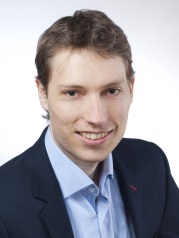
Dr. Michael Bach
Dr. Michael Bach is the CEO and a co-founder of HQ Imaging. He is an expert in the field of Magnetic Resonance Imaging (MRI) data analysis, MRI sequence optimization and MRI quality assurance. His works regarding diffusion MRI data reconstruction in the human brain and diffusion phantom development have been honored with the “German High-Tech Champions Award” of the renowned Fraunhofer-Gesellschaft and the “ISMRM Merit Award” of the International Society for Magnetic Resonance in Medicine. He obtained his PhD in 2013 for his research on high-resolution diffusion-weighted MRI.
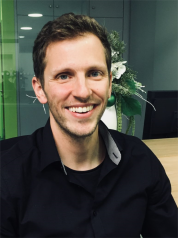
Dr. Philipp Mann
Dr. rer. nat. Philipp Mann is an expert in the field of MRI sequence optimization and quality assurance. He received his PhD in 2017 in the field of imaging guided adaptive radiotherapy and has been working at HQ Imaging since May 2017. By the combination of his post-doctoral position at the German Cancer Research Center and his many years of experience in the field of scientific research, he has direct access to the latest innovative developments that can be translated into new products together with the customer.
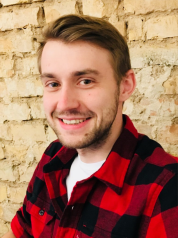
Dr. Jan-Eric Meissner
Dr. rer. nat. Jan-Eric Meißner is a physicist who received his doctorate in 2017 in the field of quantitative MR imaging of physiological parameters by means of chemical exchange. Since June of the same year, he has been applying his skills in MRI sequence optimization and the development of automated evaluation software at HQ Imaging. His simultaneous employment as a PostDoc at the German Cancer Research Center leads to a constant input of the latest scientific developments in medical software into HQ Imaging’s processes.
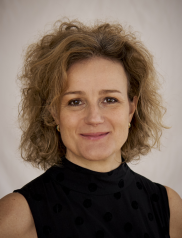
Regula Gnirs
Regula Gnirs complements the HQ Imaging team with her broad knowledge in dealing with patients and is therefore a highly qualified contact for all questions concerning the routine operation of radiological practices. She is responsible for the implementation and supervision of pharmaceutical studies as well as for the optimization, standardization of new MRI devices at the German Cancer Research Center and does this in close cooperation with the manufacturers. She completed her diploma as a radiology specialist in Switzerland in 1991 and received a management training at the BPIH in Bern in 1998. Due to her many years of experience in dealing with MRT devices (Siemens, Philips and GE) and her work as MR applications specialist for leading contrast agent manufacturers, she has been involved in teaching and further education of MTRAs in the German-speaking countries for several years now.
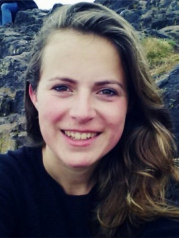
Anke Maertens
Anke Maertens is a biomedical engineer with 5 years of experience in MRI biomarker analysis, mainly for neurological disorders like Multiple Sclerosis and Alzheimer’s disease. She loves bringing new technologies to clinical practice by connecting with all stakeholders. As she worked closely together with pharmaceutical companies as well as with radiologists and neurologists, she brings a wide range of commercial insights to HQ Imaging. At the moment, she focuses on the marketing of HQ Imaging and conveys to potential customers the importance of protocol optimization by HQ Imaging in radiological routine.
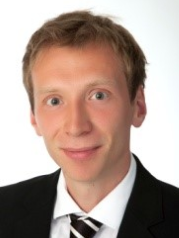
Dr. Andreas Lemke
Dr. Andreas Lemke is a physicist and a co-founder of HQ Imaging. He finished his PhD in 2011 in the field of advanced MRI acquisition techniques focusing on diffusion weighted imaging. Since 2011, he has been system engineer at BOSCH developing battery systems for electric cars. He acquired deep knowledge about process management, customer communication, automotive software and series production development. He is the inventor of more than 10 patents and is keen to use his industrial knowledge together with his MRI experience for his role as head of the advisory board at HQ-Imaging.
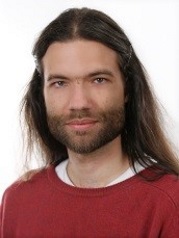
Priv.-Doz. Dr. Tristan A. Kuder
Priv.-Doz. Dr. Tristan A. Kuder is a physicist and a co-founder of HQ Imaging. Since 2016 he is heading the group „Diffusion-Weighted MRI“ at the German Cancer Research Center (DKFZ). He is the author of numerous publications and possesses longtime experience in the development of image evaluation software for clinical studies (diffusion, perfusion).
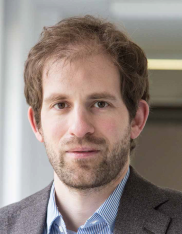
Prof. Dr. Frederik B. Laun
Prof. Dr. Frederik B. Laun is a physicist and a co-founder of HQ Imaging. He is currently heading the research group „Quantitative MR Imaging“ at the Institute for Radiology at the University Hospital Erlangen. Before that, he has been leading the group „Diffusion Weighted Imaging“ at the German Cancer Research Center (DKFZ) since 2008. The focus of his work have been technical developments in the fields of MR sequence and protocol design, quality assurance procedures, and diffusion theory. He has been involved in supervising technical aspects in numerous medical imaging studies.
